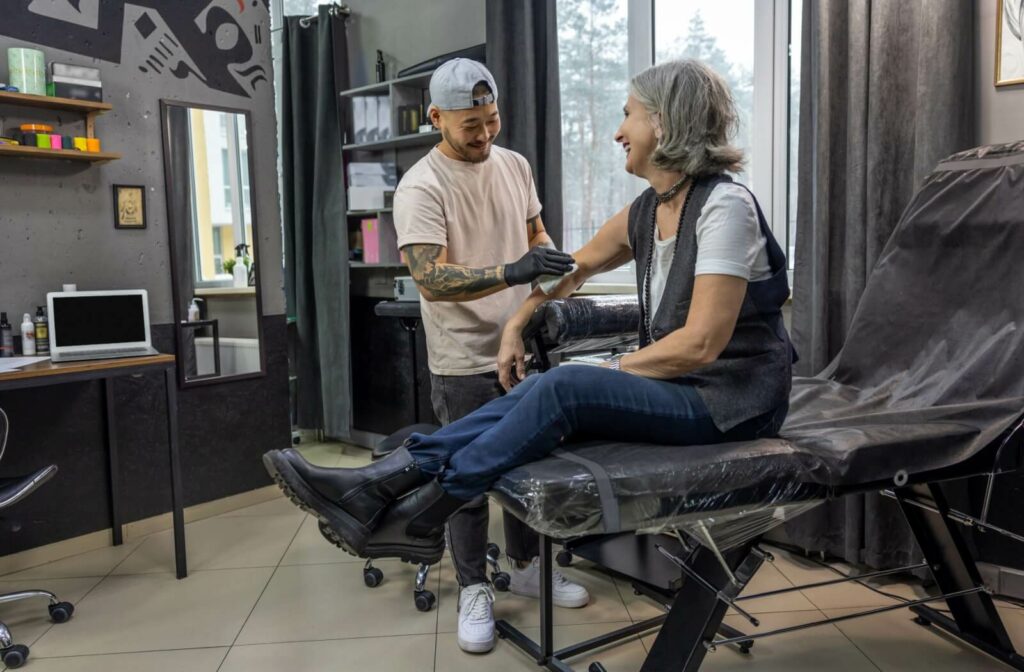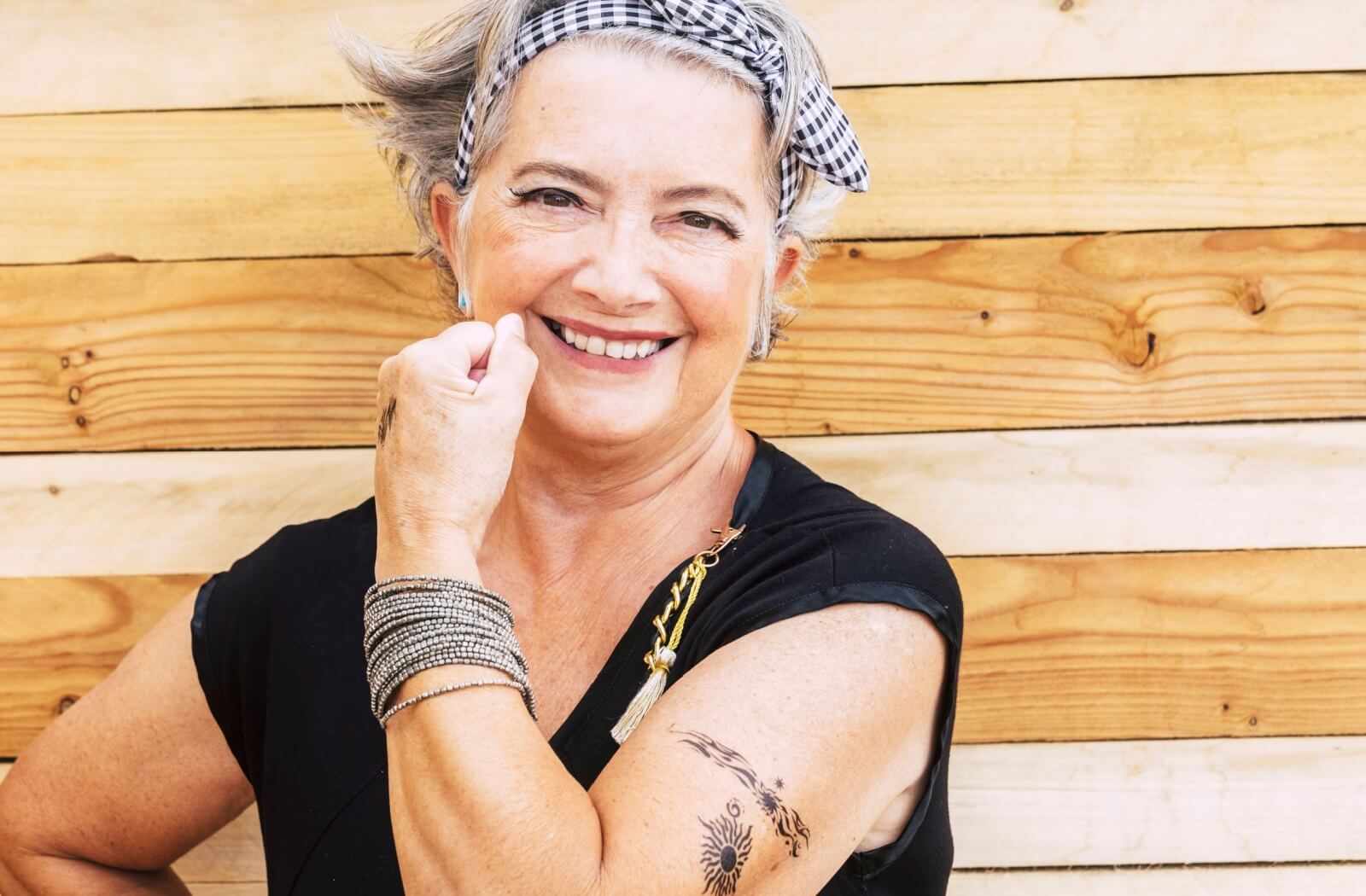While tattoos may still be seen as a youthful trend, more and more people over the age of 50 are getting inked. Whether it’s to mark a milestone or simply because they’ve always wanted one, here are some things to consider before getting a tattoo at this stage in life.
- The age factor
- Your skin
- The healing process
- Choosing the right design
- Communication with the artist
The Age Factor
Age is just a number, and it shouldn’t stop you from doing something you’ve always wanted to do. However, getting a tattoo at an older age means that your skin will take longer to heal than a younger person’s. This is because our skin becomes thinner and more fragile the older we are, making it more difficult for tattoos to heal properly.
It’s important to keep in mind that getting a tattoo after 50 may also come with some health concerns and risks. If you have any pre-existing medical conditions or are taking medication, it’s best to consult with your doctor before getting inked.
Consider Your Skin
Our skin changes as we age. This means that the tattoo you get at 50 may look different in a few years compared to how it looks now. Wrinkles, sagging, and other age-related skin changes can affect the appearance of your tattoo over time.
It’s important to remember this when choosing your tattoo’s location and design. Avoid places on the body where there are already a lot of natural signs of aging or movement, as this can distort the design over time.
The Healing Process
The healing process for tattoos can be more complicated for older individuals. It’s important to follow aftercare instructions carefully to ensure proper healing and avoid any complications. This may include taking extra care to keep the tattoo clean and dry, avoiding certain activities that may irritate the area, and using moisturizing creams to help with healing.
It’s also important to note that mature skin tends to be more sensitive, so it’s crucial to carefully choose the products you use on your tattoo during the healing process.
Choosing the Right Design
When getting a tattoo at an older age, it’s important to choose a design that holds meaning for you. Our priorities and interests may change with time, so it’s essential to select something timeless and meaningful.
Avoid trendy designs, as these may not hold the same significance in the future. Opt for something that will continue to bring you joy and have a special meaning throughout your life.
Communication with the Artist

Communication with your tattoo artist is crucial, regardless of age. However, it may be even more critical for older individuals who may have specific concerns or limitations.
Be open and honest with your artist about any health issues or medications you are taking that could affect the healing process. It’s also essential to discuss any design ideas you have and work together to come up with a design that will suit your preferences and accommodate any aging-related changes in the skin.
Additional Tips for Getting a Tattoo at an Older Age
Here are some extra tips to keep in mind if you’re considering getting a tattoo:
- Think carefully about placement. As skin changes, your tattoo’s placement can significantly affect how it looks over time. Areas with less stretching or movement, like the upper arm or back, may preserve the design better.
- Do your research on the studio and artist. Take the time to check for reviews, view the artist’s portfolio, and ensure the shop follows proper hygiene and safety standards. A skilled, professional tattoo artist is key to getting a high-quality piece you’ll love.
- Consult your doctor if you have health concerns. If you have medical conditions like diabetes, skin sensitivities, or a history of slow healing, ask your doctor if getting a tattoo is safe for you. They can provide advice on any precautions you might need to take.
- Stay hydrated and live healthy. Good hydration and a healthy diet can contribute to better skin elasticity and vibrancy, helping your tattoo age gracefully. Regular use of sunscreen can also prevent fading caused by UV exposure.
- Start small if you’re unsure. If you’re nervous about committing to a large design, consider starting with something smaller. This can give you a sense of the process and how it feels before deciding on a larger piece. Tattoos are highly personal, so take the time to choose something meaningful to you.
Embracing Your Individuality at Juniper
Getting a tattoo as an older adult is about embracing your individuality and expressing yourself through body art. Age should not hold you back from getting a tattoo if it’s something that truly brings you joy and holds a special meaning for you.
At Juniper Village at The Spearly Center, we believe it’s never too late to embrace your individuality and express yourself. Getting a tattoo later in life can be a deeply meaningful and joyful experience, especially with the right preparation and support.
We’re here to celebrate every unique journey and support you every step of the way. If you’d like to learn more about our community and how we nurture individuality at every age, we’d love to hear from you.







